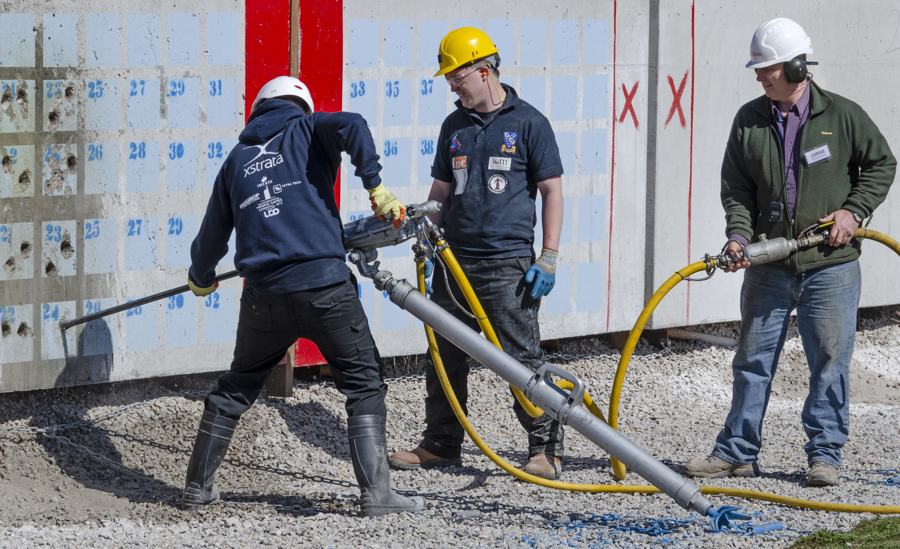Sports
Sportow
While miners worked hard, they also played hard. Football, rugby, and Cornish wrestling were widely practiced. And wherever the miners went, they took their favoured sports with them. Football in Mexico, rugby in New Zealand and wrestling in California are all a result of the influence of Cornish mine workers.
Sport played a big part in mining communities. Rugby, football, and Cornish wrestling were all popular. Playing or watching sports gave the miners and their families something to do in their free time and was welcome relief from the toils of the working week. Games and matches were highly social occasions, particularly when teams from different villages or towns would compete against each other.
When mine workers travelled across the globe in search of employment, they kept their favourite sports alive, introducing them to local people and setting up leagues and teams that still exist today.
Cornish wrestling
Cornish wrestling has been practised for centuries. In Cornish dialect, it’s known as ‘wrasslin’ and it’s one of the oldest sports still practiced in Cornwall today. In 1923, the Cornish Wrestling Association was formed to help create a standard set of rules and promote it worldwide.
It’s quite different to other forms of wrestling, like WWF. Wrestlers wear tough jackets which help them grip their opponent more easily – and all holds have to be taken on the other wrestler’s jacket. Holding below the waist, or grabbing fingers or wrists isn’t allowed. The objective is to throw your opponent and land him as flat as possible on his back. There’s a complicated scoring system, which is administered by three ‘sticklers’, or referees.
Cornish wrestling has been practiced for centuries. In Cornish dialect, it’s known as ‘wrasslin’.
Cornish wrestling takes place all over the world. Wherever the mine workers went, they took it with them – just as they did with traditional food like Cornish pasties. It’s still widely practiced and popular in Victoria, Australia, and Grass Valley, California. In Grass Valley, Cornish wrestling competitions form part of their St Piran’s Day celebrations.
Rugby
Three of the countries who have excelled on the world rugby stage - Australia, New Zealand and South Africa – all owe a debt to Cornish miners. They introduced the game to the areas they went to work in, and gradually the sport developed.
Teams from each of those countries all played in Cornwall in the early 20th century: New Zealand in1905 and1924, Australia in 1908, South Africa in 1906 and 1912 and the Maori in 1926.
Football
Cornwall also has strong links with Mexico (the silver mining settlements of Pachuca and Real del Monte are now referred to as Mexico’s ‘Little Cornwall’).
While the miners introduced a variety of sports, it was football that made the most impact there – local workers soon developed a passion for El Fútbol. Cornish miners were the driving force behind Mexico’s first football club, the Real del Monte Pachuca Athletic Club in the early years of the 20th century.
The International Mining Games
The International Mining Games were created by the American Mining Schools in 1978, to commemorate the miners lost in the 1972 Sunshine mine disaster in Kellogg, Idaho.
The Games are dedicated to all miners who have lost their lives in the course of duty. They aim to keep old-fashioned mining methods (many of which were developed in Cornwall and date back to the 17th century) alive. Events include track laying, tramming, hand drilling, surveying and gold panning.
Now an annual event, the Games attract competitors from mining schools all over the globe and are hosted by a different country each year. In 2018, the 40th International Mining Games were held in Cornwall, at the King Edward Mine in Camborne.
